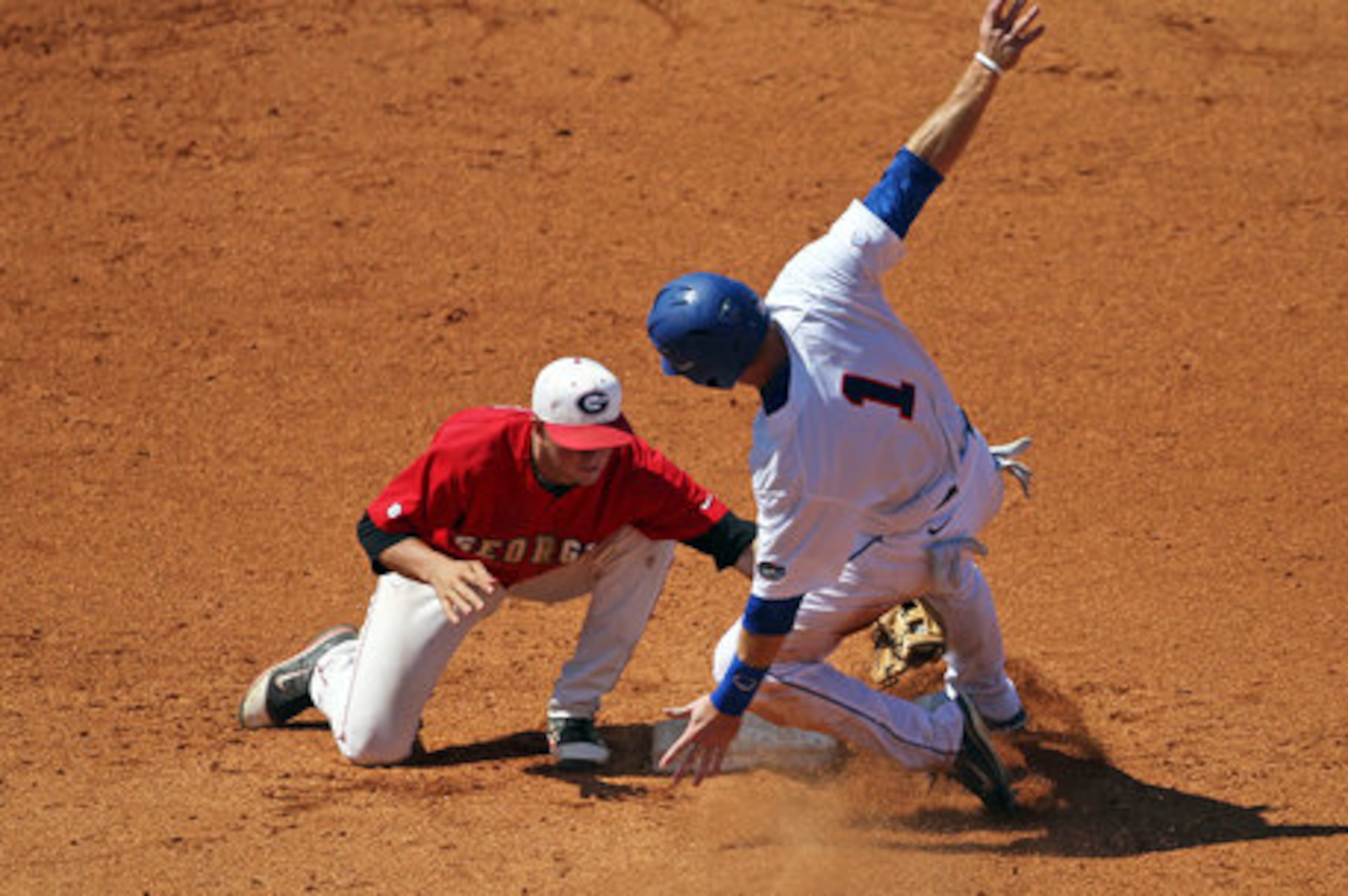How MLB’s agreement with union could affect Braves
If the Braves play a substantially shortened schedule this year, which seems to be a best-case scenario at this point, many of their players would lose millions of dollars in salaries.
If the season winds up being canceled altogether, two players signed this past winter, left fielder Marcell Ozuna and starting pitcher Cole Hamels, could become free agents again without ever playing a regular-season game for the Braves.
And if a season is played, some postseason games might be held at neutral sites.
Those are just a few of many extrapolations that can be drawn from the agreement reached last week between Major League Baseball and its players' union about how to deal with various issues stemming from the coronavirus pandemic that has shut down the game.
While many questions remain unanswerable, including when or whether the season will begin, the agreement sought to address as many contingencies as possible.
Players will be paid a prorated portion of their 2020 salaries, depending on how many games are played. For example, if teams play a 100-game schedule, as opposed to the usual 162 games, players would receive about 62% of their full salaries. If teams play an 81-game schedule, players would receive 50% of their salaries. (The examples of 100- and 81-game schedules are for illustrative purposes only; no one knows at this point how many games will be played, if any.)
The Braves’ highest-paid player, first baseman Freddie Freeman, would lose about $8.4 million of his $22 million salary if the season is limited to 100 games and would lose $11 million if it is limited to 81 games. Another example: Hamels and Ozuna, both of whom have one-year $18 million contracts, would lose about $6.8 million apiece if only 100 games are played and $9 million apiece if only 81 games are played.
At the other end of the payroll spectrum, a Braves player making slightly above the MLB minimum salary of $563,500 – say, young starting pitcher Mike Soroka – would lose about $215,000 if the season is limited to 100 games.
If no games are played this year, players won’t receive any of their 2020 salaries except for advances that will be paid over the next two months.
The agreement between MLB and the MLB Players Association provides that players across the 30 teams will receive a total of up to $170 million in advances -- $5.67 million per team on average – toward their 2020 salaries in April and May. If games are eventually played, those advances will be paid back as deductions from the players’ paychecks. If the season is canceled altogether, the players won’t have to reimburse teams for the advances.
Players with major-league contracts and three or more years experience are expected to receive advances of about $150,000 per month in April and May. Other players with major-league contracts, or players with so-called “split” contracts that specify different salaries for playing in the majors or minors, will receive smaller advances. Non-roster invitees to spring training, such as the Braves’ Charlie Culberson and Felix Hernandez, aren’t covered by the provision for advances.
If there's no season, the Braves would be on the hook for $5.67 million in salary advances, but not for the rest of their approximately $150 million player payroll. Of course, the team's revenue -- $476 million last year -- would largely disappear, too.
Even if no games are played this year, player contracts that were scheduled to expire after the 2020 season will still end at that point. That’s why, if the season is canceled, Ozuna and Hamels could become free agents again without playing a regular-season game for the Braves. (Because of injury, Hamels hadn’t appeared in a spring training when MLB shut down.) Similarly, even if there are no games this season, Freeman would remain eligible for free agency after the 2021 season, the last year of his current contract.
A key issue in the MLB-MLBPA agreement is the handling of “service time,” which is a crucial economic factor in the game because it drives first-time eligibility for free agency and salary arbitration. Players are eligible for free agency after six years of service and for arbitration after three years of service (or slightly less in some cases).
All players who received a full year of service time in 2019 will receive the same in 2020 if no games are played. If a reduced number of games are played, players will receive a full year of service time if they’re in the majors for all of the shortened schedule. In the Braves’ case, the service-time agreement means pitchers Soroka and Max Fried can remain on track for arbitration before the 2022 season and shortstop Dansby Swanson on track for free agency after the 2022 season.
Although no one knows when the 2020 season can begin, the MLB-MLBPA agreement makes clear that both sides will seek to play as many games as possible after it is determined safe to do so. Left open are such options as playing games with or without fans in attendance, playing games at neutral sites, changing the postseason format and pushing back the start of the postseason by playing regular-season games later in the year than originally scheduled.
Moving the postseason back, say, a month or more could lead to playing the World Series or other playoff series at warm-weather neutral sites or in domed stadiums, but no decision has been made on that. It’s a decision MLB hopes will need to be made at some point.
(The Associated Press contributed to this article.)



